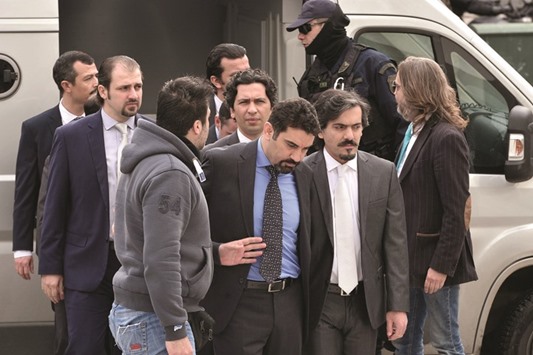Greece’s Supreme Court has blocked the extradition of eight Turkish military officers sought by Ankara over July’s failed coup against President Recep Tayyip Erdogan, a justice source said.
The men landed a helicopter in Greece a day after the botched putsch and asked for asylum, setting up a politically delicate situation in Greece.
Turkey has branded them “terrorists” and the case is awkward for Athens, which is working with Nato ally Ankara to stem the flow of migrants through its territory towards western Europe.
“Regardless of their (alleged) culpability or the seriousness of their crimes, extradition cannot be applied because the rights of those wanted could be nullified or curtailed,” the court said.
The officers – two commanders, four captains and two sergeants – embraced each other and snapped pictures with their Greek lawyers after the ruling was read out, the justice source said.
In addition, the court ordered that the eight be released from police custody.
However, shortly after the court’s decision Turkey issued an arrest warrant for the eight men, Turkish media reported.
Turkey has previously asked for the men’s extradition.
The court decision brought an angry response from the Turkish foreign ministry, which accused Greece of protecting plotters and said relations between the countries would be reviewed.
Turkey would “use all avenues of law” to ensure the soldiers’ extradition and prosecution, it added.
“Once again Greece, an ally and a neighbour, has failed to fulfill the basics of the fight against terrorism,” it said. “The impact of this decision thought to be made with political motives on our mutual ties, our cooperation in the fight against terrorism and our work on other mutual and regional issues will be subject to a comprehensive review.”
It is an uncomfortable situation for Greece, because in addition to Athens and Ankara working together on the migrant crisis, they are also involved in delicate talks to reunify Cyprus.
Greece’s Prime Minister Alexis Tsipras in September had told Erdogan that democracy was “very important” to Greece and coup plotters were “not welcome,” according to state agency ANA.
But Greek Justice Minister Stavros Kontonis earlier this month said that the government would respect any decision by the court.
After the men landed in the northern Greek city of Alexandroupolis, Turkey’s then ambassador warned that failure to return the officers “will not help” ties.
“I hope we will manage to swiftly go through the phases of due process and manage to return these terrorist elements so that they will face justice,” the ambassador told reporters.
When the officers arrived a local court handed them a two-month prison sentence for illegal entry into the country, suspended over a three-year period.
They were later relocated to Athens and have spent the past six months in police custody.
In his defence, one of the Turkish officers had said: “We saw indiscriminate arrests of military personnel and we were afraid.”
Another said: “I’m proud to be an army man. I would not have left Turkey had my life not been in danger.”
The officers deny having taken part in the putsch and claim that their lives are in danger.
They say that members of their families have been sacked from their jobs and had their passports confiscated.
The presiding judge in yesterday’s ruling noted that they also risked “torture” at home.
Since the coup attempt, many Turkish military officers have requested asylum in other Nato countries.
Turkish authorities have arrested thousands of people since July with many thousands more having been sacked – in particular journalists, teachers and police officers, over alleged links with the movement of Fethullah Gulen, the Muslim preacher accused by Ankara of orchestrating the coup.
The eight officers have requested asylum in Greece.
Their applications were originally rejected in July but appeals are currently being processed.
The Supreme Court took over the case after an appeals court last month gave contradictory rulings on the case.
In three separate hearings under different judges, the appeals court elected to protect five of the officers but ordered the other three to be sent back.
Relations between Greece and Turkey have improved over the years but they remain at odds over territorial disputes and ethnically split Cyprus.
In 1996, they almost reached the brink of war over an uninhabited islet.

The eight Turkish army officers arriving at the Greek Supreme Court yesterday. The Greek court have blocked their extradition over July’s failed military coup against President Erdogan.
